On 1 December, the European Commission launched a broad public consultation to gather the views of various stakeholders on European Research & Innovations (R&I) programmes. Open for 12 weeks, the consultation closed on 23 February 2023 and now the results have finally been published.
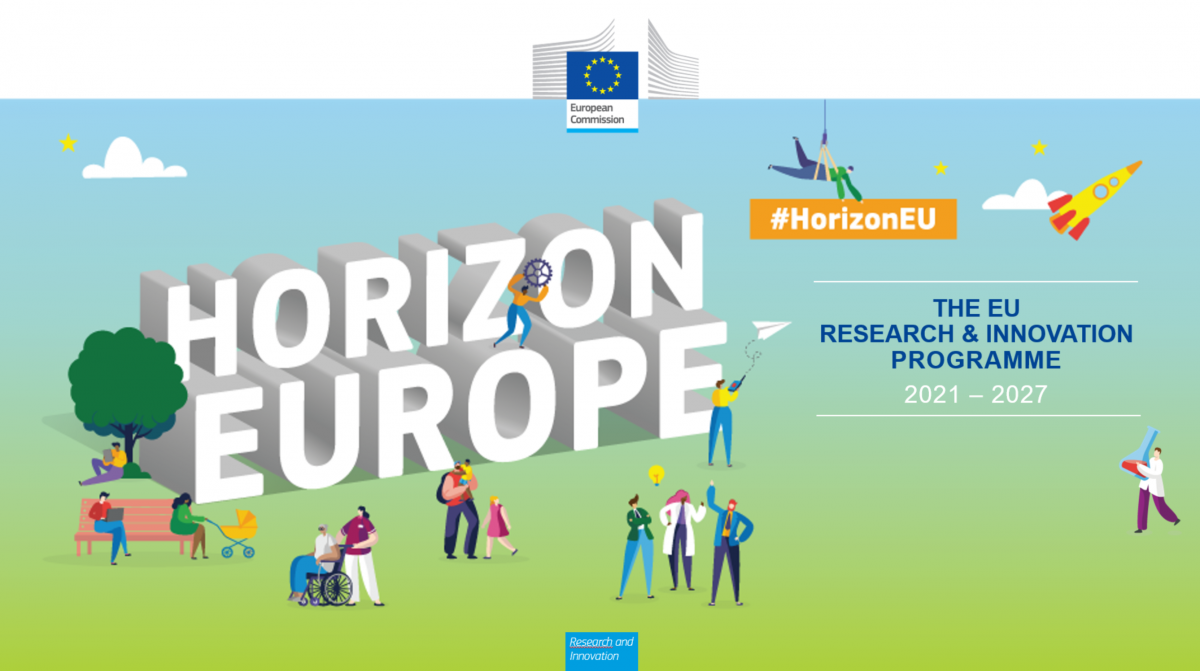
Purpose of the consultation
The aim of the consultation is to assess the achievements of Horizon 2020, the EU programme covering the period from 2014 to 2020, and Horizon Europe, running from 2021 and ending in 2027, and to contribute to the definition of the orientations of the next Horizon Europe Strategic Plan 2025-2027.
In total, 2,788 responses and 265 position papers were submitted. Of these, 2,558 responses and 108 position papers responded to section D ‘Looking into the R&I future priorities 2025-2027′ on the orientations for the strategic plan, detailing stakeholders’ priorities and concerns for the future of EU R&I funding.
The document published by the European Commission presents the responses received in that section and the analysis of these provides valuable insights into the priorities and concerns of stakeholders within the European research and innovation community and will be useful in shaping the future direction of the Framework Programmes.
Results of the consultation
Responses were collected from 75 different countries, including the 27 Member States, associated EU countries and non-EU countries. With 273 responses, Italy is the country with the highest number of respondents, followed by France (260) and Germany (252).
Respondents indicated that the most important challenges for society are ‘climate change’, ‘energy supply’, ‘loss of biodiversity’ and ‘strain on health systems and an ageing European population’ over the next 10 years. This was followed by questions on which Horizon Europe clusters contribute most to the societal challenges.
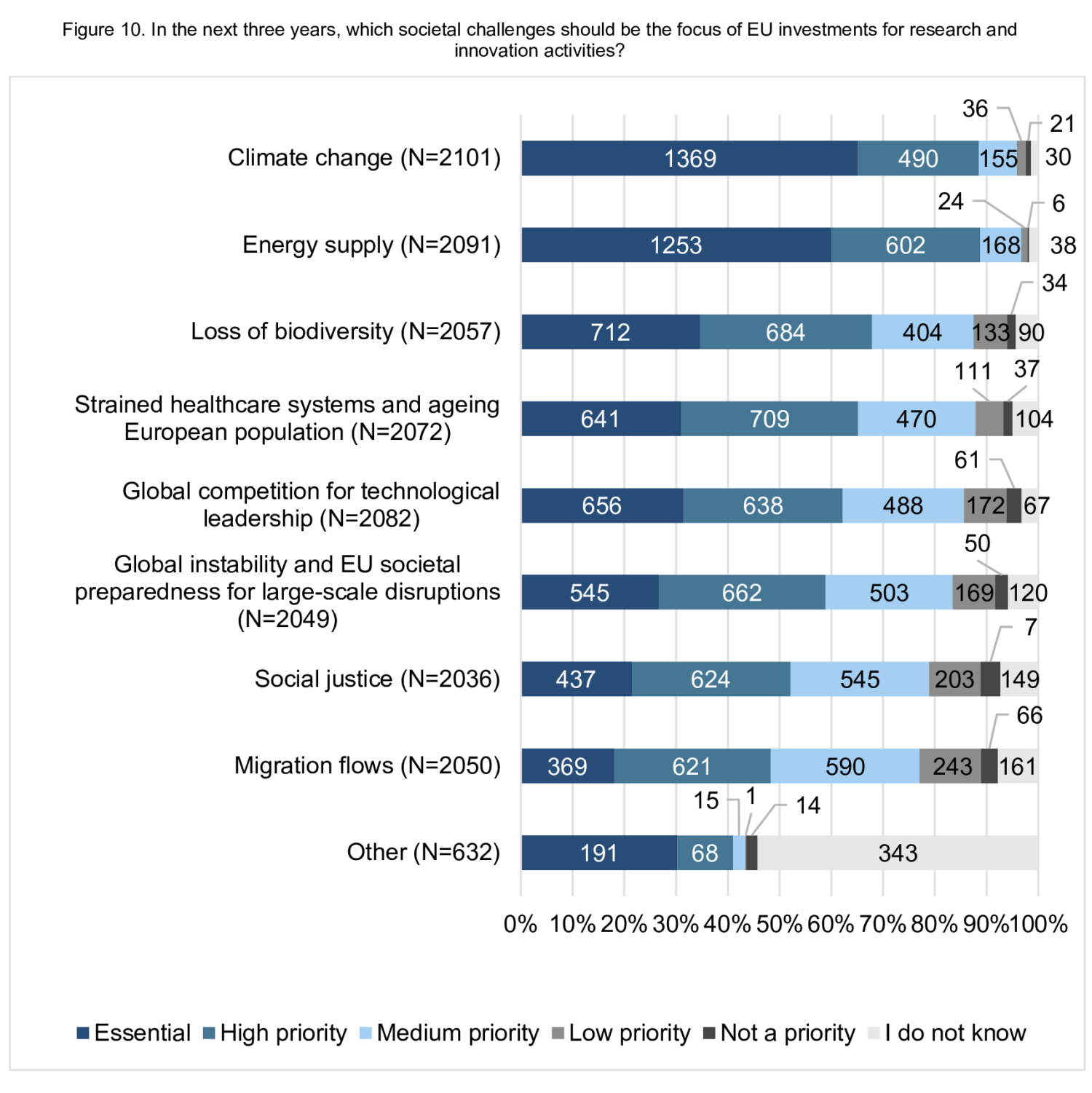
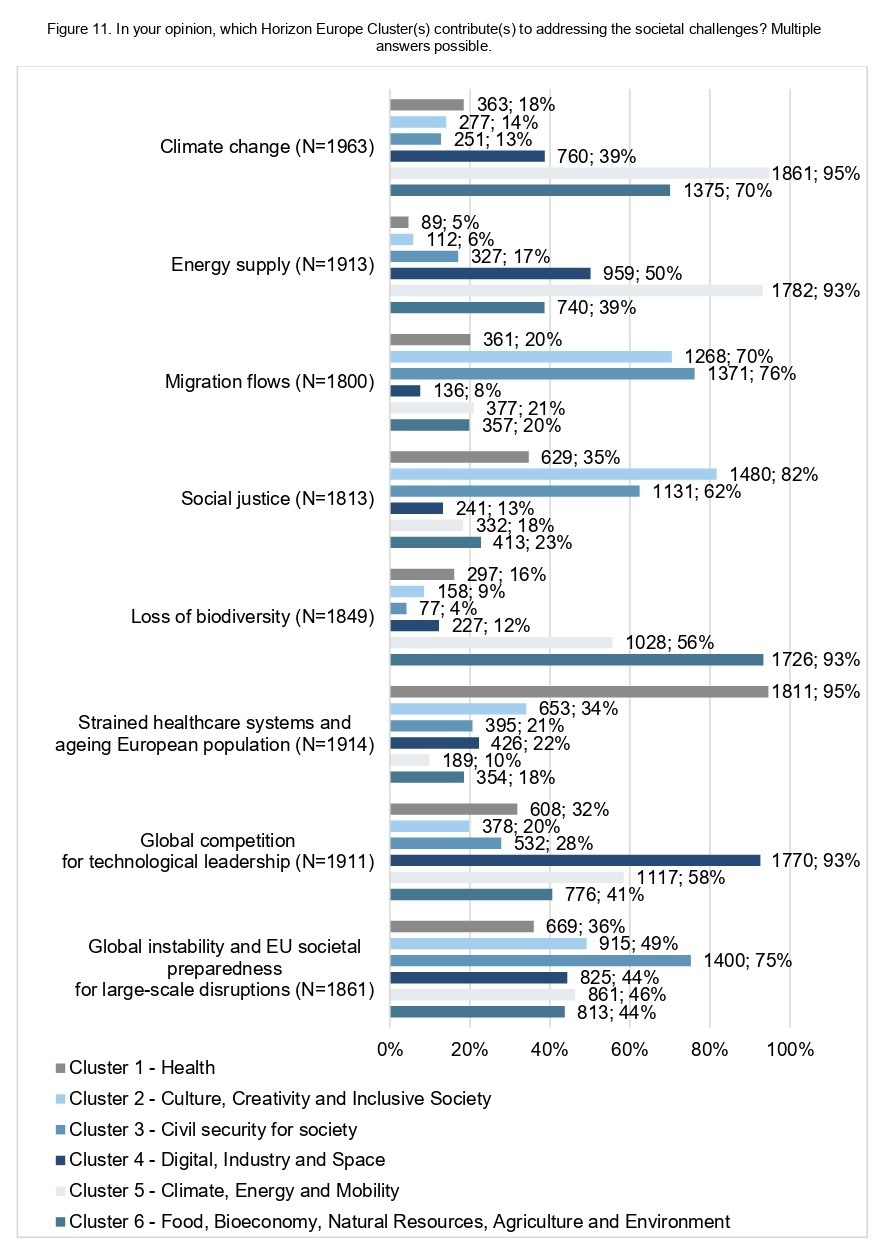
Part of the questions were devoted to synergies and complementarities both between the various Horizon clusters and between Horizon Europe and other European R&I programmes. According to 61% of the participants, there is great unexploited potential for complementarity between cluster 1 ‘Health’ and cluster 6 ‘Food, Bioeconomy, Natural Resources, Agriculture and Environment’. 53% also believe that there is some potential between cluster 6 ‘Food, Bioeconomy, Natural Resources, Agriculture and Environment’ and cluster 5 ‘Climate, Energy and Mobility’. Looking at the respondents’ answers on the synergies to be reinforced between Horizon Europe and other European programmes, we can see that 41% of the respondents agreed on the need to strengthen the collaboration between Horizon Europe and the Digital Europe Programme (DEP), followed by a large part of the respondents who mentioned the Erasmus+ programme and the Programme for Environment and Climate Action (LIFE).
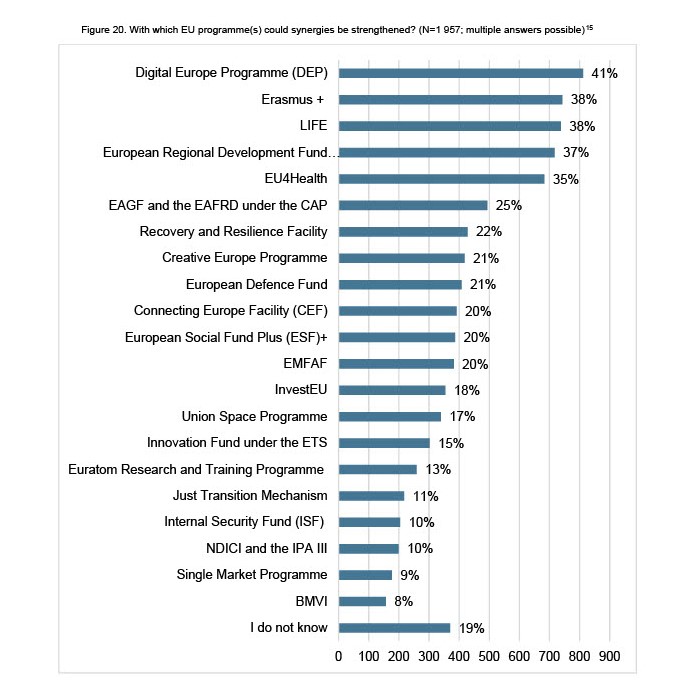
A number of respondents pointed out some obstacles preventing beneficiaries of European funds from exploiting the complementarity between Horizon Europe and other programmes, in particular with the European Regional Development Fund. Firstly, the difficulty in finding funding opportunities and navigating between different EU programmes, followed by a lack of clarity on sequential funding possibilities and rules for benefiting from multiple programmes.
Respondents were also asked about the structure of the Horizon Europe Strategic Plan 2021 – 2024 and the comprehensibility of the Plan’s Key Strategic Orientations (KSOs). According to the responses, for the majority two out of four KSOs (Restoring Europe’s ecosystems and biodiversity and Making Europe the first digitally enabled circular, climate-neutral and sustainable economy) are easy or very easy to understand, and the KSO Creating a more resilient, inclusive and democratic European society is also easy or very easy to understand for a vast part of respondents (46%). In contrast, the KSO on ‘Promoting an open strategic autonomy’ was indicated as difficult or very difficult to understand. Among the specific problems, some indicated that the current structure is complex and asked for simplifications. Others indicated that the plan is difficult to understand and that the document could be made more accessible.
Furthermore, according to the majority of respondents, there are some specific themes that should be further elaborated in the Strategic Plan 2025-2027, these include international cooperation, key enabling technologies and deployment and exploitation.
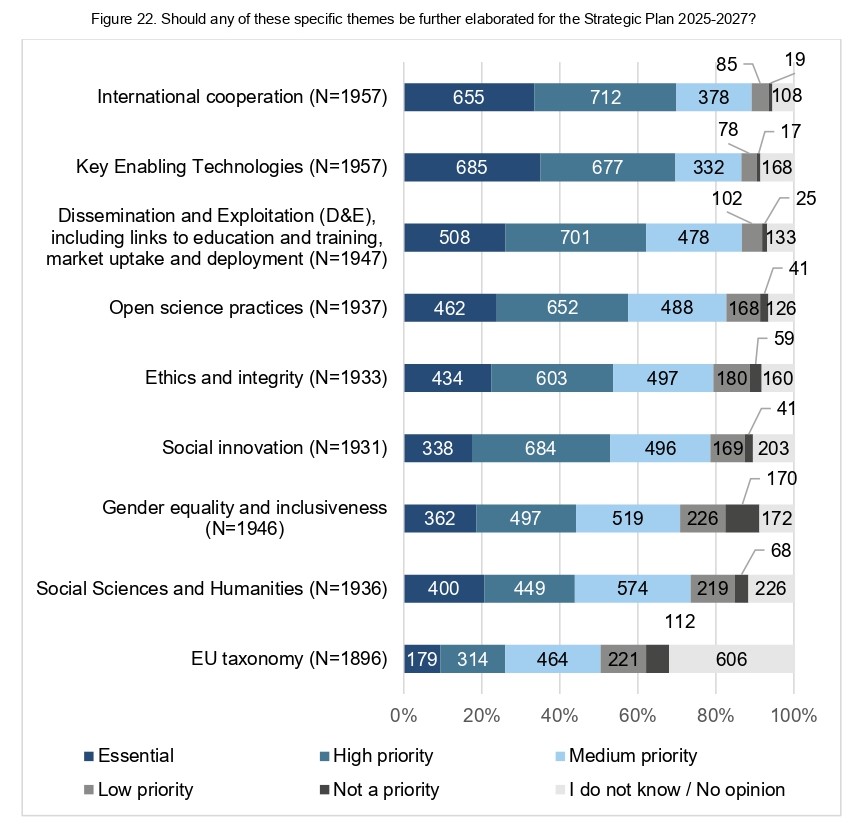
These insights from the online public consultation provide valuable input and will feed into the ongoing strategic planning process for the next Horizon Europe Strategic Plan 2025-2027 and the preparation of the next R&I Framework Programme. A summary of the results will also be included in the Strategic Plan analysis document, to be published in May.
Click here to access the full report.
All images from European Commission, Directorate-General for Research and Innovation, Synopsis report : looking into the R&I future priorities 2025-2027, Publications Office of the European Union, 2023, https://data.europa.eu/doi/10.2777/93927
